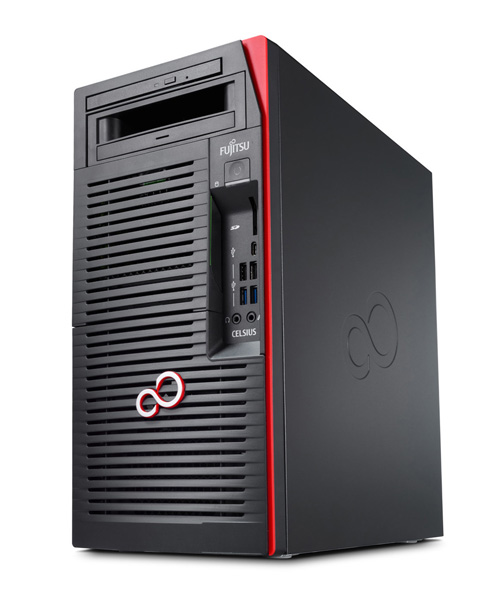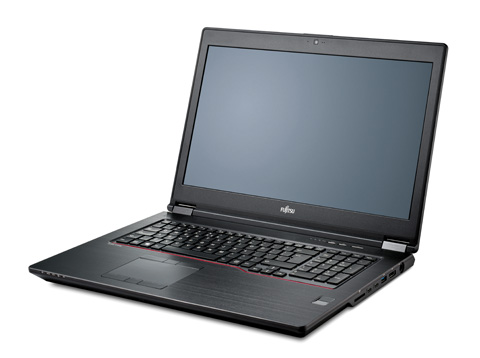
The compact ‘VR Ready’ CELSIUS W570power+
Fujitsu has unveiled two new ‘VR Ready’ workstations powered by Nvidia Quadro P Series professional graphics cards – the CELSIUS W570power+, which Fujitsu says is the industry’s smallest VR capable desktop workstation, and the CELSIUS H970, a 17-inch mobile workstation.
The CELSIUS W570power+ is a special edition model of a new 21 litre microtower desktop workstation. The machine is 180 x 304 x 375 mm in size, 12kg in weight and has a built-in handle at the front, making it easy to move between design office and board room for VR presentations or design / review.
The desktop workstation is 30 percent smaller than its predecessor but is still highly expandable, featuring up to three NVMe PCIe M.2 modules and seven drives in total. 2.5-inch and 3.5-inch drives can be swapped out easily using Fujitsu’s hallmark easy rails.
Fujitsu says W570power is an ideal device for 2D/3D CAD and BIM applications, as well as VR. When configured with the Nvidia Quadro P4000 VR-ready GPU it can be paired with a professional Head-Mounted Display (HMD), such as the HTC Vive or Oculus Rift. It features the latest Intel Xeon E3-1200 series CPUs as well as up to 64GB of DDR4 memory.
Meanwhile, the CELSIUS H970 offers professionals such as architects, engineers or designers who spend time in the field, enough power for 3D CAD and VR in a mobile workstation form factor.
The machine features a 17.3-inch FHD display, plus full connectivity with two Thunderbolt 3, one full-sized DisplayPort and VGA. In terms of graphics, on paper it even outdoes the CELSIUS W570power+, with a choice of GPUs including the high-end Nvidia Quadro P5000 GPU with up to 2,048 CUDA cores. For easy serviceability, components are accessible via the service door conveniently located in its base.
“The combination of virtual reality combined with our powerful workstations opens up many exciting possibilities. While there is a trend in the market to sacrifice size versus performance, we still believe in the workstation DNA. This means no compromise in terms of performance, reliability, expandability, space-saving and VR capabilities,” says Ruediger Landto, Head of the Client Computing Devices EMEIA at Fujitsu. “The revolution has just started. We recognize that VR can promote a holistic development process and enhance many stages of the value chain – from design, engineering, manufacturing, operations to maintenance.”

The CELSIUS H970, 17.3-inch ‘VR Ready’ mobile workstation,






